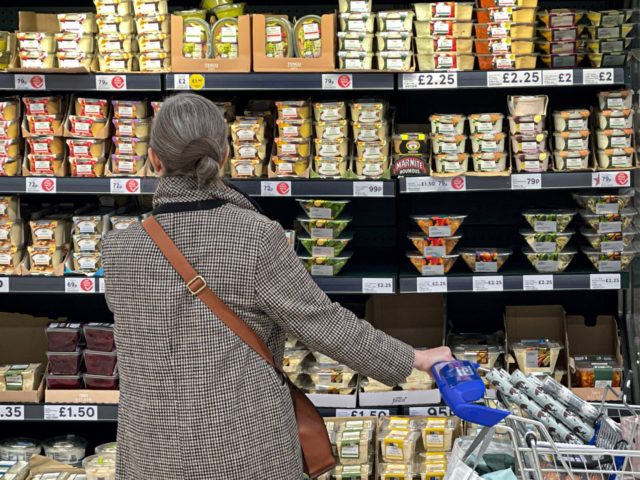A one million increase in the number of destitute households in the UK is feared as a result of Tory tax hikes, a pressure group calling for higher government spending warns.
Fears have emerged regarding increasing “destitution” in the UK, after a report published by the National Institute of Economic and Social Research estimated that there could be an increase of one million destitute households in the country as a result of Conservative Party tax hikes.
Boris Johnson’s government announced the increase to payroll tax late last month in order, they claim, to get government finances back on track after the Chinese Coronavirus pandemic. Despite the measure, Johnson went on to insist that he and his colleague, Rishi Sunak, were “Thatcherites” and “tax-cutting Conservatives”.
Further casting doubt on the move, the government has since announced billions of new spending in government giveaways, and hundreds of millions on getting involved in Ukraine. The tax-and-spend policy has been negatively compared to the worst excesses of the left-wing Gordon Brown era of government.
Now, according to an economic report titled “Powering Down, Not Levelling Up” — a reference to another recent government scheme — the Johnson administration has been putting the economic cart before the horse, while not adequately taking into account inflation.
“The government has chosen to tighten primarily through fiscal policy, leaving monetary policy lagging the inflation cycle,” reads the report from the think tank headed up by Professor Jagjit S. Chadha. “This policy sequencing is the wrong way around.”
“We need flexibility to deal with economic not political shocks and what we have witnessed is no way to run fiscal policy,” the publication also notes regarding the incoming payroll tax increase.
This alleged failure, according to the paper, will increase the number of destitute households in the UK by one million, with the combined power of the payroll tax rise as well as rising inflation expected by the researchers to bump overall UK destitution by 30 per cent. The paper defines a destitute household as one “where they lack resources to purchase basic necessities”.
Yet the paper’s answer seems to be a return to the super-high spending era of the early pandemic, when chancellor Sunak ‘opened the taps’ of government spending, underwriting the lockdowns with massive amounts of borrowed money that will be paid back for decades to come. The National Institute of Economic and Social Research paper said the government should simply spend more money while not raising taxes.
They said: “…there ought to be significant pressure on the Chancellor of the Exchequer both to delay the rise in National Insurance contributions scheduled in April and to increase spending plans”.
The paper argued, it should be left to monetary policy — things like the manipulation of interest rates — to solve the issue of price stability.
Not-So Conservative: Boris Plows Ahead with Massive Tax Hikes Despite Soaring Cost of Livinghttps://t.co/xkVJd3cffU
— Breitbart London (@BreitbartLondon) January 30, 2022
Initially announced in September 2021, the Conservative hiking of payroll tax in the UK was confirmed late last month as a response to the expenses and debt racked up over the COVID pandemic.
“The cost has been enormous — well over £400 billion,” an opinion piece by Boris Johnson and Chancellor of the Exchequer Rishi Sunak discussing the increase read. “We have been able to afford it because the Conservative government is careful with the nation’s finances. We must continue to be responsible now, as we deal with Covid aftershocks — and above all with the Covid backlogs in healthcare.”
The duo also claimed that the new payroll tax was fair and equitable, being levied on those who are financially able to pay.
“It is progressive: the burden falls most on those who can most afford it,” the piece continued. “Every penny of that £39 billion will go on crucial objectives — including nine million more checks, scans and operations, and 50,000 more nurses, as well as boosting social care.”
This claim stands in stark contrast to those made in the NIESR report, which has claimed that lower-income households and areas have been put at risk by the tax hike.
Also noted by the report is that Northern Ireland in particular is facing more than double the percentage rise in destitution — 67 per cent — when compared to the UK average.
This is at a time when stability in the North is already under threat, with tensions rising over the implementation of the Northern Ireland protocol on the island of Ireland, as well as the substantial probability of a forthcoming election — currently scheduled for May — returning the Nationalist Sinn Féin party as the largest in Northern Ireland’s parliament for the first time in the region’s history.

COMMENTS
Please let us know if you're having issues with commenting.